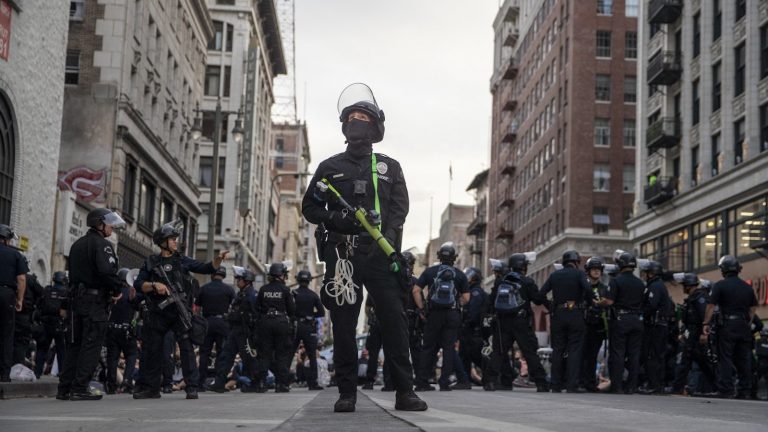Watch Free the People’s latest documentary film on justice reform, How to Love Your Enemy: A Restorative Justice Story.
In the wake of George Floyd’s killing, the Minneapolis City Council announced its intent to dismantle its police department, even though, as City Council President Lisa Bender admits, the Council does not know what that would look like yet. This is a bold measure, and it’s too early to tell its outcome. Some support the decision, pointing to the disbanding of Camden, New Jersey’s police force. Others object to the Council’s decision, suggesting reform measures instead. But one thing is certain: a major factor in the Council’s decision to dismantle its police force rather than reform from within is the overwhelming obstacle of its police union, which dug its heels in the ground for the accused police officers. The time to hold offending police officers accountable for their actions is long past due, but officers will not be held accountable until we disassemble the largest institution protecting them.
Minneapolis’s struggle with its police union isn’t unique. Police unions have a long history of protecting bad cops and obstructing justice for victims of police brutality. For starters, there’s the union’s unparalleled power to get officers their jobs back. In a 2013 news report from NBC Philadelphia, the Fraternal Order of Police revealed that 90 percent of police officers who were fired for alleged wrongdoing got their jobs back&mdashthe vast majority of whom received their full pay and benefits again. As retired NYPD commander Corey Pegues described in his memoir, Once a Cop, “there was no accountability whatsoever. The union would protect them no matter what they did.”
Police unions are unlike other unions. Outside of bargaining for typical things like increased pay or vacation days, they also bargain for how soon officer complaints must be purged, how long misconduct investigations must be delayed before they can begin, and when they can restrict footage from being released to the public. The purging of complaints, of course, destroys potential evidence. And the delays in investigations give offending cops time to get their stories to line up. And footage restrictions prevent the public from seeing the truth.
In addition to giving police officers special protections that normal citizens don’t get, these unions hold exceptionally strong political influence.
Not only do they spend millions on campaigns, but also, because police departments have done such an extraordinary job of making “police officer” synonymous with “public safety,” unions can demonize any threat to a police officer as a threat to public safety. As Kathrine Bies put it in the Stanford Law & Policy Review, “police unions often strategically frame any opposition to their agenda of secrecy as endangering public safety and harming the public interest. However, police unions often conflate ‘the public interest’ with the private interests of police officers.”
Disassembling police unions is a step that could change law enforcement for the better. By abolishing the bargaining contracts that protect bad officers, increasing accountability, and denouncing the highly strategized union rhetoric being poured into elected officials’ ears, real change could be made in our justice system. Police unions have repeatedly obstructed justice and prevented police accountability, and in doing so, they have ruined the integrity of entire police departments and degraded the public’s trust in law enforcement more broadly—as we’ve seen.
In light of the tragic killings of George Floyd and Breonna Taylor, it’s clear that there are police departments that need serious reforms to regain the public’s trust. Ending police unionization will be a significant step toward achieving that goal.














Add comment